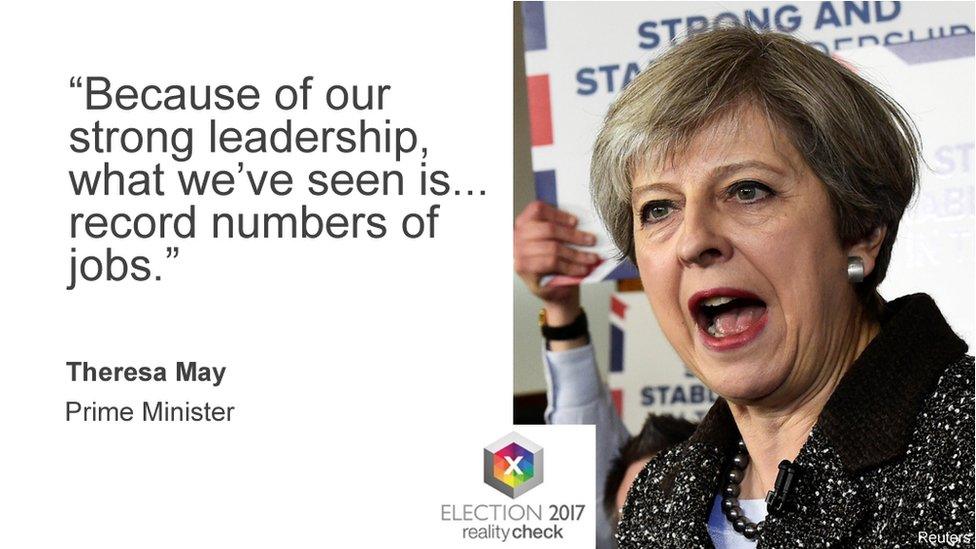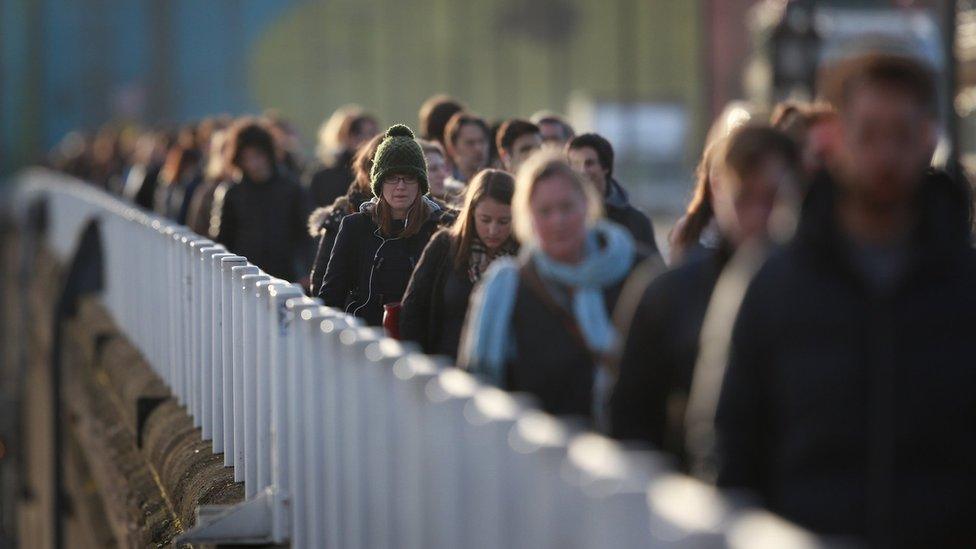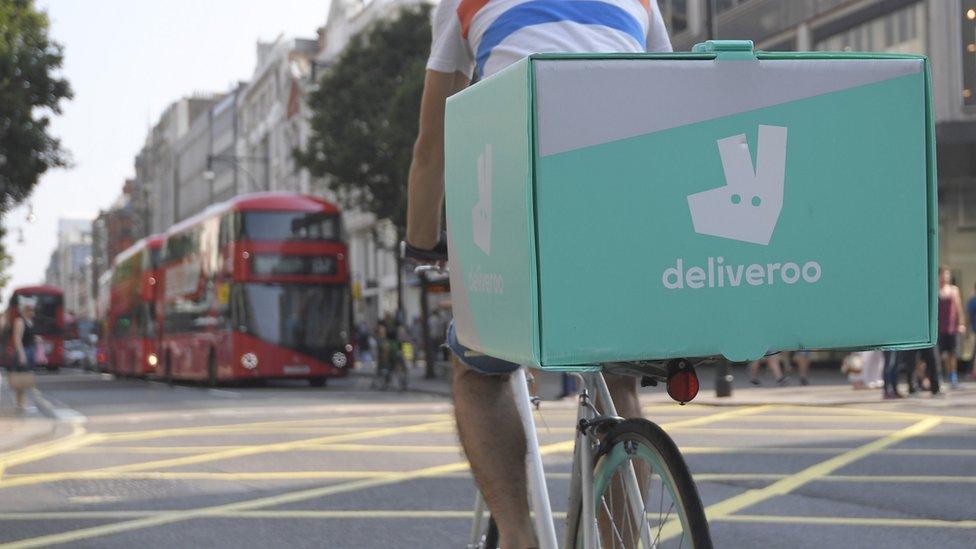Reality Check: Have we seen record numbers of jobs?
- Published

The claim: There is a record number of jobs in the UK.
Reality Check verdict: The number of jobs in the UK is indeed at a record level as are the numbers of people employed and the proportion of those aged between 16 and 64 who are in work.
Prime Minister Theresa May has been speaking to a Conservative rally in south Wales.
She claimed that the evidence for her strong leadership could be seen, among other things, in the "record number of jobs".
The latest figures from the Office for National Statistics, external (ONS) suggest that between December 2016 and February 2017 there were 31.84 million people in work.
The figure is actually a touch below the one for November to January, but the difference is well within the margin of error.
The November to January figure was indeed a record number, but with a growing population the employment rate is probably more relevant.
The employment rate for those aged between 16 and 64 was 74.6% in the latest figures, which is also the highest since comparable records began, in 1971.
That picture was not uniform across the UK, external though, with Wales, where the prime minister was speaking, having a 73% employment rate between December and February.
Only north-east of England, the West Midlands and Northern Ireland have lower rates.
While those are the figures everyone usually reports, they are not, strictly speaking, the same as there being a record number of jobs, because one employed person can have more than one job.
The ONS also releases figures for workforce jobs, external, which are collected from businesses rather than workers.
That suggests there were 34.62 million jobs in December 2016, the highest since comparable records began in 1958.
The number of people working part-time has risen considerably since 2010, although it has been relatively stable for the past couple of years.
'Gig economy'
The vast majority (85%) of UK workers are employees rather than being self-employed, but since 2008, 40% of the overall increase in the workforce has been down to a growth in the number of people who are self-employed.
Some of this shift will be down to people working in the so-called "gig economy" - that is, people in fairly insecure work such as driving cabs or delivering takeaways.
Because these changes have been so recent and rapid, there is no breakdown in the official statistics, which means we can't say how much of the increase in self-employment is down to insecure working and how much to entrepreneurship.
Think tank the New Economics Foundation published research, external in December, which suggested that in London the gig economy had grown by almost three-quarters since 2010.



- Published25 April 2017

- Published20 April 2016

- Published9 December 2016
